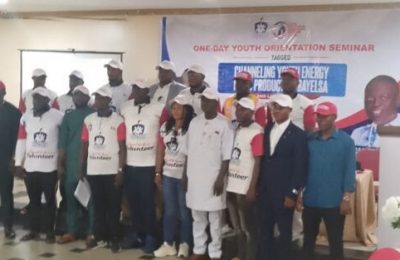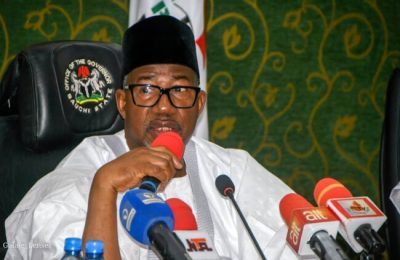
There is now unease among the leadership of organised labour over the delay in the release of the consequential adjustment template for the implementation of the new minimum wage signed into law by President Bola Ahmed Tinubu on 29th July.
Following a 48-hour ultimatum by the president, the minister of finance, Wale Edun and his national planning counterpart, Atiku Bagudu had in early June presented the cost implications of a new national minimum wage to Tinubu.

However, since the new wage was approved on July 29, the template for the consequential increase of the payment structure has yet to be communicated by the federal government to organized labour raising anxiety.
In expressing its worries, Labour is saying that the government is spending an unnecessarily long time in releasing the template knowing how anxious workers are to begin to enjoy their newly approved wages.
Speaking to the Nigerian Tribune in Abuja, the two labour centres who lead the labour union movement in the country, Trade Union Congress (TUC) and Nigeria Labour Congress (NLC) admonished the Federal and State governments to expedite action towards ensuring commencement of the new minimum wage implementation without further delay.
TUC Deputy President, Comrade Tommy Etim Okon, pointed out that Congress had been pressing the federal government to release the template to no avail.
He said: “It is the statutory duty of the National Salary Income and Wages Commission to come up with the template for the implementation while the Joint National Public Services Council will engage with the government on the consequential adjustment to cover all grade levels in the service.
“To achieve the above, the Trade Union Congress has been engaging and pressuring the government to release the template for the implementation of the new National Minimum Wage because of the socioeconomic challenges and the need to ensure that the purchasing power of the average worker has improved.
“The TUC is not happy with the delay in the implementation and that is the reason why its mounting pressure on the government to urgently provide the template for the implementation and follow suit. We are not comfortable with the delay and we don’t want the process to take several months even though we want the process done well so that no worker will be surcharged.”
Speaking for the Nigeria Labour Congress (NLC), its Head of Information and Public Relations, Benson Upah, said the congress had expected the implementation of the new national minimum wage to have taken effect by now.
Also expressing displeasure at the delay in the release of the template, he stated: “We expected the implementation process to commence before now. We are wondering why the delay. However, we’re planning a meeting with all the State chapters aiming to ensure the agreement they will reach with their State government will be uniform.
“However, our State chapters are doing what they ought to do. We are urging all state governments to expedite action towards a reasonable consequential adjustment of the new minimum wage for workers, most importantly the implementation.
“At the national level, we are doing our best to know what the Federal government is doing towards releasing the consequential adjustment template. But we are expecting the government to make an announcement very soon. We also expect the figure of the consequential adjustment template to be reasonable and the implementation to commence soon.
“We urge the State Governments to take necessary measures to block wastages and leakages in Government expenditure so that they could implement the new National Minimum Wage to improve the standard of living of their citizens more so because they have been receiving enhanced funds from the Federal Account Allocation Committee since the removal of fuel subsidy in May, 2023.”
Reacting to the concerns expressed by the labour unions over the template delay, the Director, Information and Public Relations in the Federal Ministry of Finance Mohammed Manga, told the Nigerian Tribune in a telephone chat on Monday that the Ministry of Finance has done what it is supposed to do on the new minimum wage.
He affirmed that the Salaries and Wales Commission is saddled with other responsibilities on the issue.
When contacted, the National Salaries, Incomes, and Wages Commission (NSIWC), its Public Relations Officer of NSIWC, Emmanuel Njoku said that concerted efforts are ongoing to ensure implementation of the new Minimum Wage for federal workers.
But another source within the commission told the Nigerian Tribune that progress is being made and would soon reflect in the workers’ salaries.
“You know it’s not the work of the Commission alone. It’s a concerted efforts but is being made and workers will soon see it in their salaries,” the source said.
Meanwhile, the Centre for the Promotion of Private Enterprise (CPPE) has said that the implementation of the N70,000 minimum wage might lead to job losses for some Small Medium Enterprise (SME) firms in Nigeria.
Speaking with the Nigerian Tribune exclusively, the Chief Executive Officer of the CPPE, Dr Muda Yusuf explained that challenging economic realities might make many of the SMEs struggle to meet up with the new minimum wage.
According to Dr Muda Yusuf, “The minimum wage legislation, on the face of it, is a very good development giving the impact of inflation on the purchasing power of Nigerians and the low income of workers.
“This has really been devastating, so it’s quite commendable that the minimum wage was increased to N70,000.
“However, we need to situate this within the context of the realities of what employers of labour are currently facing in Nigeria.
“I am not talking about the big multinationals; I am referring to the Small Medium Enterprise (SMEs).
“Many of the SMEs are struggling. Many of them have been declaring losses. Some of them are struggling to break even while a number of them have even shut down their operations due to a multitude of challenges that they are facing in the economy.
“These challenges include issues around the exchange rate, energy cost, cost of logistics, cost of clearing their cargoes from the ports, and even the purchasing power of the citizens.
“These are headwinds that are having damaging effects on the SMEs. So to compel them to pay the N70,000 for their staff as minimum wage may be very challenging for the SMEs.
“We have some of them that are just struggling to run private schools, supermarkets, hospitality businesses like hotels, and many others. Most of them are not finding it easy running their operations. So if they have to implement the N70,000 minimum wage, it will be very challenging.
“The issue about this minimum wage is not entirely about the minimum wage itself. It is also about the consequential adjustment because once you set the floor at N70,000, then you have to adjust the other categories of staff, which is even bigger challenge.
“So if we are not careful, this could lead to job losses because some of the SMEs may not be able to cope. Some of them might have to retrench some of their workers, which of cause is not a good thing for the economy.”
The labour movement’s displeasure over the template delay is coming as Organised Private Sector of Nigeria (OPSN), has urged the Federal Government to immediately announce the support it promised the Sector, to enable businesses to plan effectively, noting that the ability of businesses to pay the new minimum wage will depend on such support.
OPSN comprises the Nigeria Employers’ Consultative Association (NECA); Manufacturers’ Association of Nigeria (MAN); National Association of Chambers of Commerce, Industry, Mines and Agriculture (NACCIMA); Nigeria Association of Small and Medium Enterprises (NASME) and Nigerian Association of Small Scale Industrialists.
The Director-General, NECA, Mr. Adewale-Smatt Oyerinde, while speaking on behalf of the Sector, stated that at the time the consultations were ongoing on the national minimum wage, the Sector had expressed concerns about the ability of the private sector to pay the N62,000 recommended by the Tripartite Committee then.
According to him, the N62,000 deal was premised on the understanding and agreement by the Government representatives that the Government would take definite steps to reduce the current economic burden on the organized private sector.
He added that some of the supports the Sector requested from the government, and which are yet to be met, include, the reversal of increase in electricity tariffs, Central Bank of Nigeria (CBN) redemptions of all outstanding forwards for companies in the productive sector, a freeze on introduction of new taxes and levies on businesses for the next five years, fixed rate of N800 for the assessment of import duty on all production inputs, and revisit of the recent Financial Reporting Council regulation to curtail its application to private businesses, among others.
While affirming that consultation is still ongoing within the Organised Private Sector, on the issue, Oyerinde however called on the government to immediately fulfill its part of the deal by providing the support it promised the sector to enable it to deal decisively with the issue.
“The private sector will continue to partner with Organised Labour to ensure compliance and inclusive economic development, while we look forward to the support promised by Government,” he added.
Apart from Edo which has been paying N70,000 minimum wage, other states have now indicated their preparedness to implement the agreed increase. They include Adamawa, Ondo, Osun, Lagos, Benue, Nasarawa, Borno and Oyo.
ALSO READ THESE TOP STORIES FROM NIGERIAN TRIBUNE







